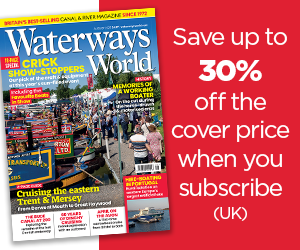Tim Coghlan
Tim Coghlan - From stockbroking to boats

Located at the junction of the Oxford and Grand Union canals, the history of Braunston and its importance on the canal network of old are well documented. However, the relatively modern chapter of the Braunston story is less well known, and it’s a story that revolves around one character – Tim Coghlan. His journey from the bright lights of London’s financial district to this historic boating region helped propel the inland waterways towards the vibrant leisure facility we enjoy today.
This chapter of Braunston’s story begins in the late 1980s when the canals’ commercial-boating heyday was long gone, and the leisure-boating industry, which elevates the region today, was still gathering momentum. By this time Braunston Wharf, the site of today’s Braunston Marina, had been beaten down by a succession of recessions, mismanagement and cold-hearted business decisions, leaving it dilapidated and in a sorry state.
Around this time Tim Coghlan was working in London as an accountant and stockbroker, but things in the City were not looking good. In 1987 there was the stock-market crash known as Black Monday and, as a result, the financial services industry was in turmoil, with takeovers and redundancies being a daily occurrence.
Becoming one’s own boss
“I knew I had to get out,” Tim told me during our meeting at the Admiral Nelson, the canalside pub near Braunston which has hosted boaters for centuries. “The financial industry was becoming an increasingly cut-throat and nasty business. At 40 years old I was a relatively old man in a young man’s game and the likelihood of being made redundant was high. I had a family to provide for and I realised I needed to find another career soon. So I decided to buy myself a business.
“Every Tuesday I would scour the Financial Times, examining what we called the ‘knackers page’ which listed businesses that had gone into receivership. And that’s when I spotted the Braunston opportunity.
“Despite my inexperience in the sector, the opportunity fitted the bill perfectly. The main asset was the 100 or so boats which were paying mooring fees to be there.”
A vision for the future
So how does a city boy from London with no boating experience make a success of a marina in a small rural village?
“At the time the leisure-boating industry wasn’t particularly lucrative. The network was run-down and the majority of waterways businesses were a ramshackle bunch catering to a frugal market. The consensus was that there was no money to be made on the inland waterways because the people who were interested in them were largely left over from the decline of commercial boating and didn’t have any money to spend. That was the overriding mentality at the time, but I was confident that there was another way.
“I’d been involved in yachting and seen the quality and affluence on display at coastal marinas. I was certain that there was potential to replicate this on the inland waterways and attract a similar type of more affluent boater. My canal-boating friend knew that Braunston was the jewel in the inland waterways crown, and I had a vision to create a canal village which featured everything you might need as a leisure-boating enthusiast. And that’s exactly what happened”.
Read the full version of Tony Jones’ interview with Tim Coghlan – where he discusses his life at Braunston, the Historic Boat Rally and his future plans – in October 2022 Waterways World.
Listen to Tim - Tim Coghlan featured as a guest in the first series of the Waterways World Podcast. In conversation with Bobby Cowling, he discussed the challenges of running a boat business, his 30-plus years at Braunston and his celebrity boating friends. You can listen to it at WW Podcasts or on all usual podcast platforms.



